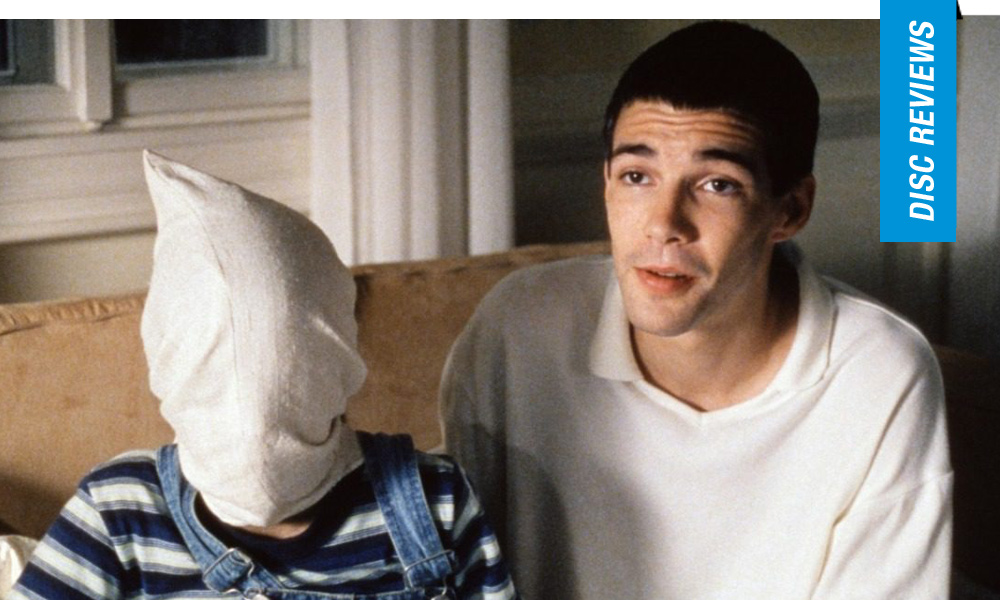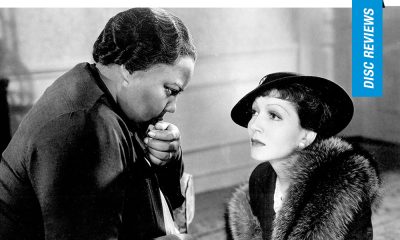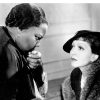Criterion Collection: Funny Games (1997) Blu-ray Review
“Every act of violence brings us closer to death,” wrote bell hooks, who went on to list a variety of internal and external examples which erode our physical and mental well-being. To her list we could add the literal consumption of violence as entertainment, which is the indictment at the heart of Michael Haneke’s international breakthrough, Funny Games (1997). Galvanizing, unsettling and deeply disturbing, the Austrian director’s first stint in the Cannes competition went on to define his particular trajectory of cinematic miserabilism, and a penchant for delivering a chilly filmography designed purposefully for admiration rather than enjoyment (though masochists should certainly argue for the varied merits of his perversely enjoyable streak of Austrian humor which often bubbles through his contemporary terrors).
His fourth feature, which in retrospect seems a natural progression following items like his 1989 narrative debut The Seventh Continent (which brought him out of television, the medium he had previously been immersed in through the 1980s) and 1992’s Benny’s Video. But it was this title, which divided audiences at Cannes and dared its admirers to champion its essence as it concerns two young ruthless killers who brutally terrorize and torture bourgeoisie families in the Austrian countryside, which finds timeless success for its ability to generate as much empathy as revulsion. And it’s perhaps this balance which denies Haneke the successful critique on violence which he aimed for, thanks in part to an unforgettable performance from Susanne Lothar.
Now one of international cinema’s most admired auteurs, it’s difficult to comprehend Haneke’s absence on the cinematic spectrum preceding Funny Games. Initially, the project was designed to be filmed in English, so as to directly and effectively critique the Western obsession with revenge and violence as innocent entertainment, as well as star Isabelle Huppert. The French icon famously balked at the film’s content (only to unite with Haneke for a more startlingly unforgettable portrait of dysfunction, loneliness and repression in 2001’s The Piano Teacher) while Haneke famously remade his film in English a decade later starring Naomi Watts and Tim Roth as the unfortunate couple whose privilege makes them prime targets for victims of home invasion. But Haneke’s first go-round was the real fluke, as the later English language remake felt more of an exercise in posture, a shot-for-shot jackhammer reminiscent of the estrangement evident towards that unhappy family in The Seventh Continent.
Neither version of Funny Games is a joyful experience, despite Haneke’s direction and mastery of cinematic form. Oddly, the predicated breaks of the fourth wall, each representative of a chapter segue into increasingly devastating moments of off-screen violence, are its safety valves, reminding us of what we’re watching, which is basically an experimental exercise meant to challenge our need for catharsis through bloodletting. Two moments in particular, however, suggest a line to be crossed as far as desensitization. Famously, none of the violence against the family occurs on-screen, and with the death of little Georg, there’s a definite point-of-no-return pallor which falls over Funny Games—we can no longer be hopeful of a justifiably contented outcome. And the last, and most fatal blow to audiences desperate for the tables to turn, is with the use of a remote control, which rewinds away Anna’s brief splurge of agency, resurrecting a doughy sociopath from the shotgun blast the effects of which are used to tantalize and tease us with our own dark desires for ‘appropriate’ carnage. The film’s German language tagline simply advertised Funny Games as “A Nightmare,” which is apt enough, then going on to compare it as “shocking like A Clockwork Orange, controversial as Natural Born Killers,” both queasy points of comparison considering both the inspired violence and cult status those titles generated.
Strangely enough, Haneke managed to make Franz Kafka a more comfortable option the same year, adapting the author’s famed unfinished text The Castle for television utilizing three of his Funny Games principles—Lothar, Mühe and Frank Giering (while Arno Frische was the titular troubled youth in the previous Benny’s Video). Similarities between the projects ends with these superficialities, however, as nothing has quite compared to the searing fiery emotional disquietude of his most horrific portrait of senseless depravity to date in the original Funny Games.
Disc Review:
Funny Games is the third Haneke title to grace the Criterion Collection (following 2000’s Code Unknown and 2001’s The Piano Teacher). A new 2K digital restoration (supervised by Haneke), the transfer is presented in 1.85:1 with 5.1 DTS-HD Master Audio soundtrack. Picture and sound quality are superb in this new release of the title, with DP Jürgen Jürges (who would lens both Code Unknown and 2003’s Time of the Wolf) carefully designed frames enhancing the chilly cruelty reflected in characterless interiors (which visually recalls Gerald Kargl’s similarly disturbing 1983 cult classic Angst).
Michael Haneke:
Criterion recorded this twenty-five-minute interview with Michael Haneke in May 2017 in Vienna (the same month his 2017 title Happy End competed at Cannes, the director’s only other competition title not to take home a major award). Haneke speaks on how this specific genre shows how easily audiences find themselves manipulated. The director also speaks of the project’s lengthy gestational period.
Arno Frisch:
Criterion recorded this seventeen-minute interview with actor Arno Frisch in Berlin in December of 2018, with the actor citing this as one of the best films he’s ever been part of.
Alexander Horwath:
Criterion also recorded this twenty-eight-minute interview with film historian Alexander Horwath in Vienna in December 2018.
Cannes, 1997:
Forty-four minutes of footage from the film’s press conference at the 1997 Cannes Film Festival includes Susanne Lothar, Ulrich Mühe and Arno Frisch is included here.
Film Review: ★★★★/☆☆☆☆☆
Disc Review: ★★★★/☆☆☆☆☆
Los Angeles based Nicholas Bell is IONCINEMA.com's Chief Film Critic and covers film festivals such as Sundance, Berlin, Cannes and TIFF. He is part of the critic groups on Rotten Tomatoes, The Los Angeles Film Critics Association (LAFCA), the Online Film Critics Society (OFCS) and GALECA. His top 3 for 2021: France (Bruno Dumont), Passing (Rebecca Hall) and Nightmare Alley (Guillermo Del Toro). He was a jury member at the 2019 Cleveland International Film Festival.
































